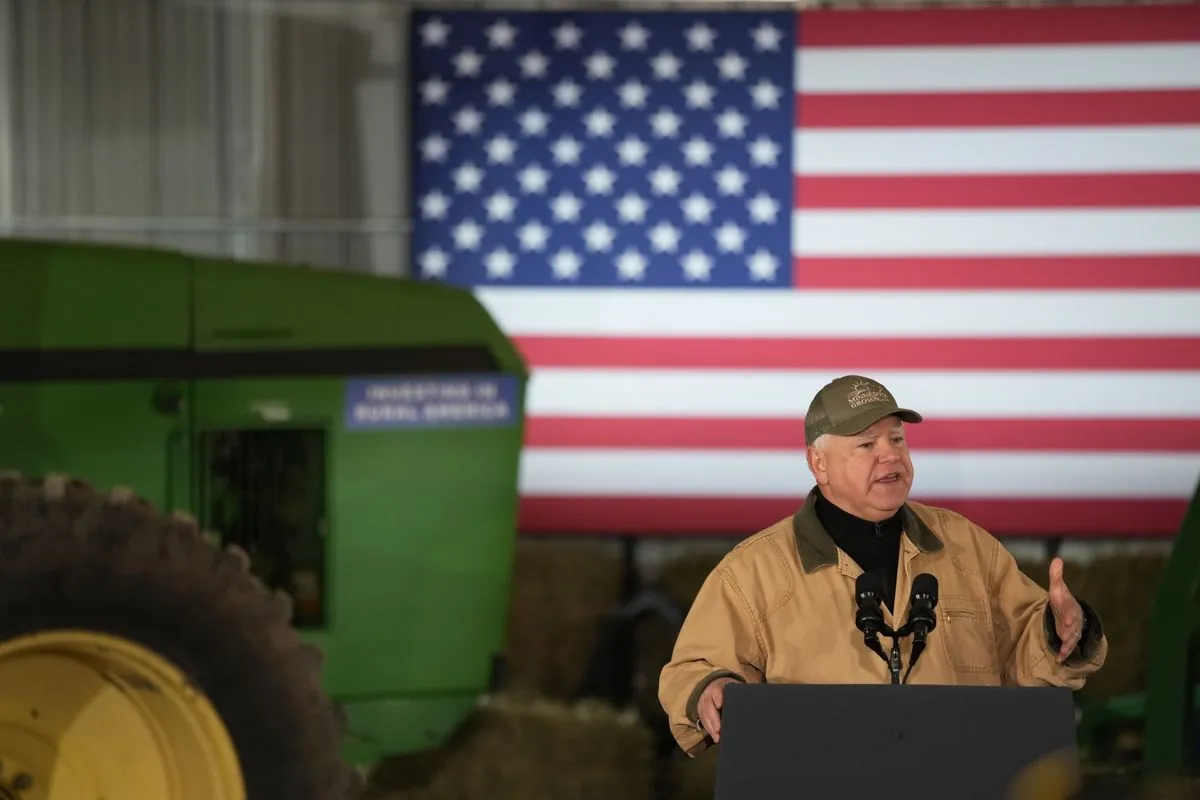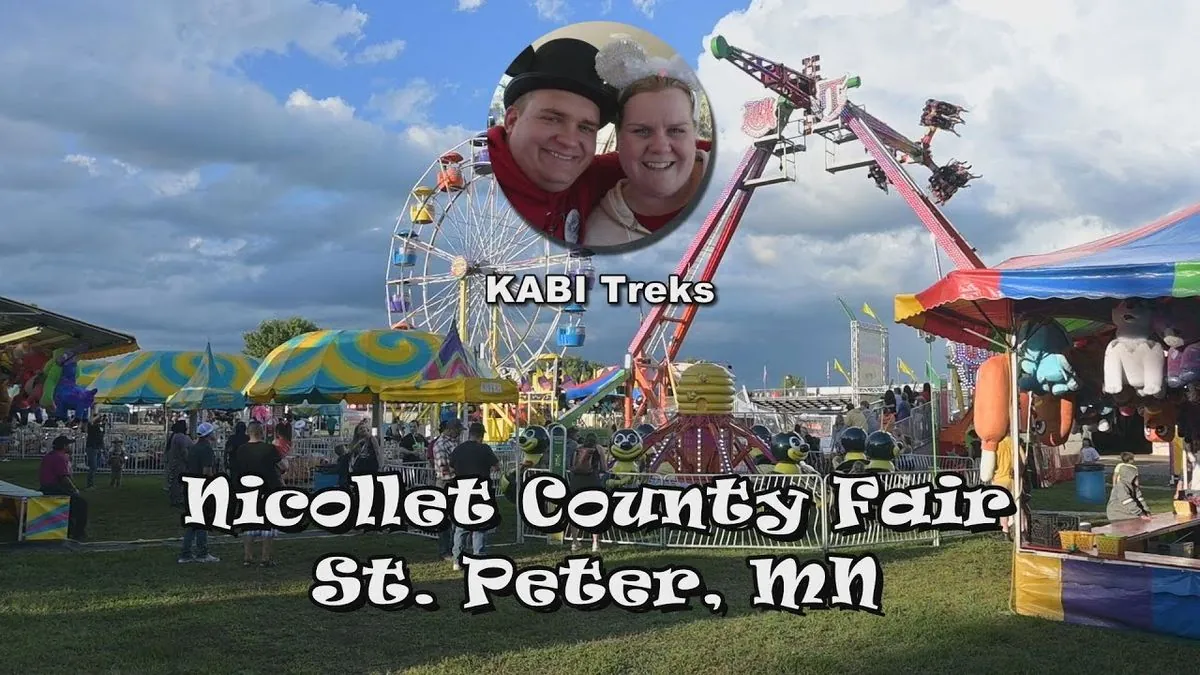Tim Walz: Bridging the Urban-Rural Divide in Minnesota Politics
Tim Walz's journey from congressman to governor reflects Minnesota's changing political landscape. His ability to connect with diverse voters faces challenges as the state's urban-rural divide deepens.

In Minnesota's 1st Congressional District, the political landscape has undergone a significant transformation since Tim Walz first won his seat in 2006. This southern region of the state, stretching from the South Dakota border to the Mississippi River, exemplifies America's growing urban-rural divide.
Walz, who served in the U.S. House of Representatives from 2007 to 2019, initially flipped the district as a Democrat in a predominantly Republican area. His background as a high school teacher, football coach, and Army National Guard veteran resonated with voters across the political spectrum. However, the district has become increasingly conservative over the years, mirroring trends seen in rural areas nationwide.
The changing demographics and political leanings of the 1st Congressional District present a microcosm of broader national trends:
- Urban growth and rural decline
- Increasing political polarization
- Shifting party allegiances
In Mankato, a college town where Walz and his family lived, residents express pride in their former congressman turned governor. However, just 20 minutes away at the Nicollet County Fair, opinions are markedly different. Rural voters, who once supported Walz, now criticize his policies as governor, particularly regarding agricultural regulations and government spending.

Walz's tenure as governor has seen the implementation of several progressive policies, including protections for abortion rights, free school meals, and the legalization of marijuana. While these actions have pleased liberal voters, they have alienated many in his former congressional district.
"I am not a Walz fan. We had a $17 billion surplus and he just ... spent it. It's not like I got any rebates."
Despite the growing political divide, Walz's supporters argue that his ability to connect with diverse voters remains a strength. His personal connections in Mankato and his reputation for authenticity are seen as assets that could help bridge the urban-rural divide on a national scale.
The challenges faced by Walz in his home state reflect the broader difficulties Democrats encounter when trying to appeal to rural voters. As Minnesota's political landscape continues to evolve, the state's unique Democratic-Farmer-Labor Party (DFL) faces the task of balancing urban and rural interests.
Walz's journey from congressman to governor, and now potential vice-presidential candidate, highlights the complexities of modern American politics. His ability to navigate the urban-rural divide may prove crucial in the upcoming national elections, as Democrats seek to reconnect with rural voters who have increasingly aligned with the Republican Party.
As Minnesota continues to be a battleground state, with its high voter turnout and diverse economy, Walz's political future may hinge on his ability to reconcile the diverging interests of urban and rural communities. The state's reputation for "Minnesota Nice" and its history of political engagement provide a unique backdrop for this ongoing political evolution.


































